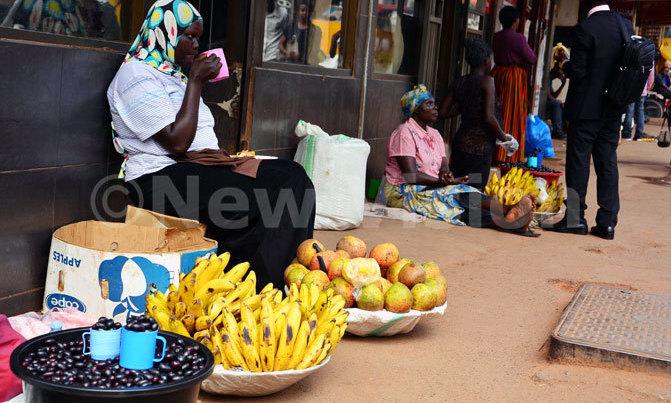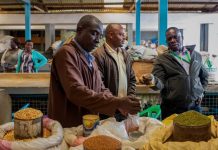Africa-Press – Uganda. BUSINESS
A new study on the impact of coronavirus lockdown on market vendors of perishable goods in Uganda has shown that women vendors were more affected than men economically.
The report which was conducted by the College of Agricultural and Environmental Sciences at Makerere University targeted vendors of bananas, tomatoes and leaf vegetables in four districts.Dr Losira Nasirumbi Sanya, the Principal Investigator, said that they visited over 14 markets which included Kalerwe, Kawempe, Nakasero, Nakawa, Kasubi, Matugga, Mukono, Mpigi, Bbombo and Gayaza.”Although all vendors experienced the distortions caused by the pandemic, its severity was more among those in the urban relative to the peri-urban markets, and among women compared to men. This was so because most of the fresh foods vending business is dominated by women. They comprised 71.8%,” said Dr Nasirumbi.Dr Nasirumbi noted that during the lockdown, women dropped more commodities (6.4 on average) compared to men (1.4. 76%) of the vendors reported a reduction in the volumes traded.”Main reasons for the reduction was the low demand which resulted from a reduction in the number of customers and COVID-19 restrictions of working and social distance. Women dealt in multiple commodities compared to men but they reported a lack of capital relative to men. They had more to sell but could not due to low demand; sellers were more than buyers and there was increased competition,” Dr Nasirumbi said.Uganda was put under lockdown on March 31 which involved a ban on public transport and restrictions on movement, with people told to stay at home, save for some key workers like medics and those selling foodstuffs. People had to seek permission from the resident district commissioners to move.”During the lockdown, they were few vendors, those who had customers lost them because it was hard to trace them as many lost spaces due to social distancing. Urban vendors who continued to sell had a challenge of movement, they walked to markets every day and others slept in markets which had poor hygiene which was not favouring women. Families were affected especially those with single mothers,” said Professor Johnny Mugisha, the Dean School of Agricultural Sciences.Prof Mugisha recommended that Government should improve market infrastructure to integrate health first aid facilities and establish more markets to decongest existing markets.”Government should support vendors to transition to e-commerce trading platforms and home delivery applications to retain and increase their customers. To help vendors reduce losses, policy makers should provide storage and preservation facilities of perishables. Vendors especially women should be trained in ICT,” said Prof Mugisha.During the meeting, a panel of experts weighed in on how Ugandan businesses will survive if there is another pandemic.”During the lockdown, we saw a shift of people moving from the main market to streets which also affected vendors in the main markets. But going forward vendors need to add value to their goods by improving on their packaging and quantity. If a client orders online, select the best tomatoes so that you keep him or her,” said Dr Joshua Ntambi, a commissioner trade and marketing at the ministry of trade, industry and co-operatives.Matthias Kasibante, a market vendor at Kawempe market also called upon Government to avail them with soft loans to facilitate uptake of innovative technologies so that they bring their businesses back to normal in the new socially distant world.”We need training to learn different ways of adding value to what we sell. We also need to be linked to markets for perishable goods,” Kasibante said.






